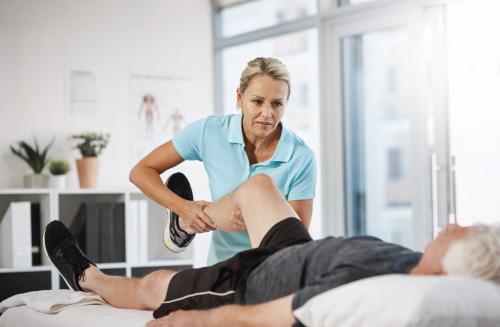How to Find a Qualified Acupuncturist: Tips to Choose the Right Practitioner
Acupuncture is one of the ancient practices from traditional Chinese medicine and, at present, a subsidiary therapy for most diseases. The treatment usually decreases sensitivity to pain; it operates in the field of mental condition; at least, it may be fairly considered a well-being activator. But such an effect-the acupuncture one-might probably strongly depend on the skills and qualifications of the performing practitioner. No one would like the direct way of getting the best acupuncturist ever; however, with enough information on how to choose the most ideal one, it is sure to achieve it. Here is a comprehensive guide that would lead you to an ideal acupuncturist who suits your needs.
1. Credentials and Licenses:
First is qualification checking and license. Before opening up for business in any region, the acupuncturist must have licensure as a requirement to operate. For instance, an acupuncturist has to get licensure either from the state board of the United States or by getting certified through the NCCAOM.
State Licenses: For each of the states in the USA, there exists a licensing board for acupuncture. You can save just a little bit of that precious time if you only just check on their website or even call them to just know whether the acupuncturist that you are supposed to visit is licensed or not.
NCCAOM Certification: That is definitely the best if they are NCCAOM certified. This certificate simply means that it is professional and NCCAOM must classify the acupuncturist according to national standards.
2. Training and Education Must Be Checked
The practitioners have to undergo very intensive training and proper education on the acupuncture field. Master's or doctorate's degrees in acupuncture or oriental medicine from recognized institutions are normally conferred with properly educated acupuncturists.
Degree: Your practitioner should have a degree from an institution recognized by an accrediting agency with national recognition status. The programs offered by the institutions should be approved by the Accreditation Commission for Acupuncture and Oriental Medicine, or ACAOM.
Specialty: Licensed acupuncturists may have postgraduate training in a specialty of interest to you-for example, reproductive health, sports medicine, or pain management. Seek an acupuncturist with a specialty that matches your goal for treatment.
Expertise and Experience
It takes time for an acupuncture treatment to prove being either a failure or success. Experience over many years from the perspective of the practitioner is directly correlated with having complete confidence that he or she has experience with many different conditions and treatments.
Duration of Practice :Ask him or her how long he or she has been practicing acupuncture. The longer, as a rule, the better.
Experience with Treatment Areas: Ever treated cases like yours? Specialized acupuncturist who only deals with one condition.
4. Check the Background and Read Online Reviews
What others think of them is quite informative about the quality of work done by them as an acupuncturist. If that trusted person also enjoyed it, then it's a sure indication.
Ask for Referrals: Do you have any family, friends, or provider that you have ever received acupuncture from? What they describe should lead to the finding of a qualified practitioner.
Check out Websites: Read the comment that people have put on websites, such as Yelp or Google. Pay attention to how some themes keep coming up-that one finds consistent professional behavior, results, and all-around experiences for patients.
5. Communications and Comfort
Actually, how you would be treated would depend on how comfortable you and your acupuncturist are to each other. You have to feel easy about talking to one another. It is a discussion that can be done in such a manner that you would feel free to discuss any kind of health issue that you may be having in relation to everything that you should know about this treatment.
The first session would be a consultancy session with all of them; that is the session where you will decide how you want to communicate and how comfortable you feel with them when they explain their approach.
Questions to Ask: Don't be afraid to ask them what kind of techniques they use in treatment, what safety precautions they take, and what your actual sessions will be like. A good acupuncturist is generally very open about everything.
6. Clinic Environment
So it would be to your utmost interest if the clinic were clean, professional, neat, and properly reflective of the commitment an acupuncturist has towards his profession.
Apart from this, it should maintain its maximum level of sanitation and hygiene by using disposable needles or sterilized needles.
Comfort: The clinic should have a serene silent place so that all your stress disappears once you visit your appointments.
7. Cost and Mode of Payment
Well, actually, an investment in your health you know ahead of time what they take for payment. Charges are quite variable, depending on location, practitioner experience and type of treatment you receive.
Insurance coverage: Does your insurance cover that acupuncturist or has she set up some sort of payment plan? Sometimes your insurance actually covers acupuncture. So check with you and your insurance plan to see if you are covered.
How much per session? Do they charge extra for supplies, like needles, etc.? Be sure to ask how many treatments they would like you to administer and if they have some type of package deal/discounts.
8. Professional Associations
Professional organizations provides continuing education; however, also binds professionals to professional codes of conduct. Practitioners are usually members of professional associations that have standards by which they are to operate some of those being continuing education.
Professional Associations: Either is a member of a local professional organization, for example American Association of Acupuncture and Oriental Medicine (AAAOM), and other members within their region.
They are further trained which update them with new findings and applications .
9. Listen to Your Instinct
Lastly, it has to be a gut feeling. You'll find yourself responding much better towards treatment with the comfort level you feel concerning him/her and the extent to which you believe in him/her. Then if it stinks then the best possible thing to have done would be to look for another practitioner.
Conclusion
This essentially means that in terms of selection of an acupuncturist to work with, the decision should cover qualification, experience, and how you feel about them. It's advisable to check if they are registered, follow up on their educational background, seek recommendations, and weigh out the clinic so that you make a wise decision best suited to your needs and personal preferences. Many of the acupuncture benefits start with everyone choosing a good practitioner. And here are a few tips so that you may have the ability to be able to find a skillful and trustworthy acupuncturist as you go out starting off your journey for health improvement.






Comments